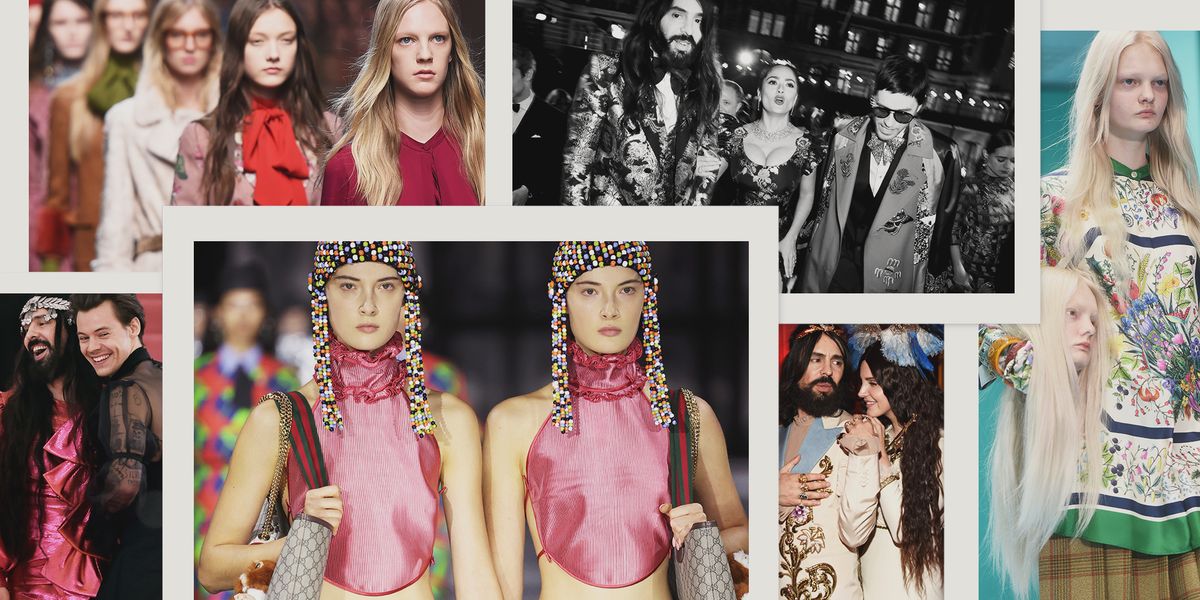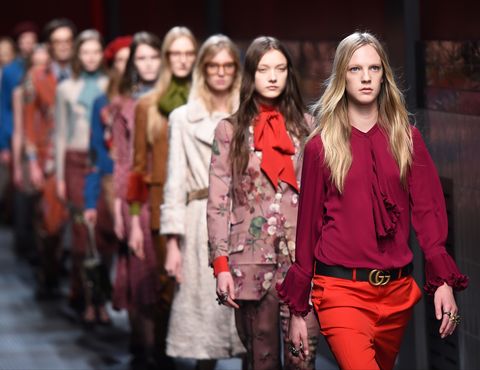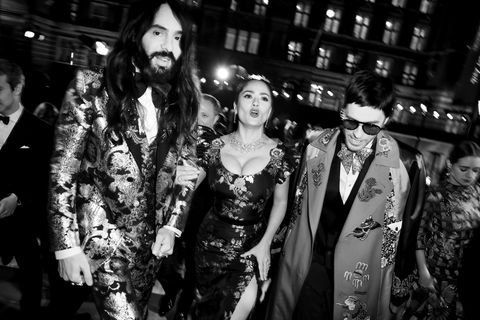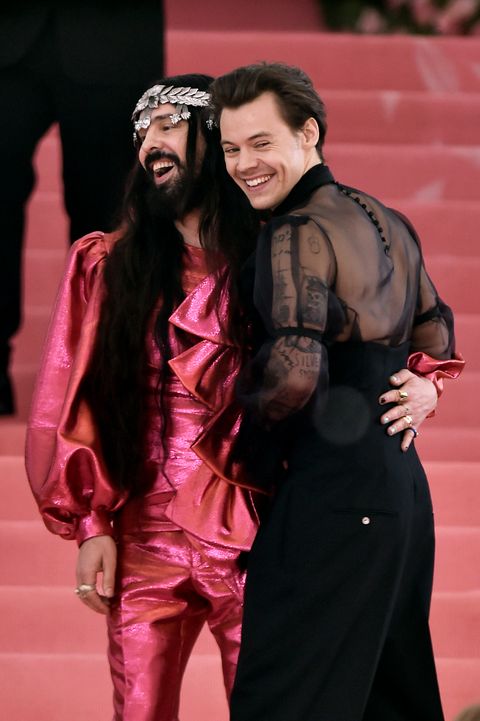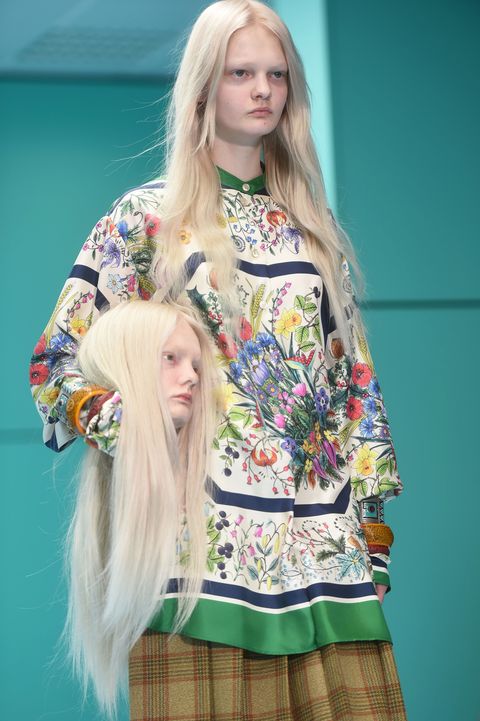Products You May Like
Style Points is a weekly column about how fashion intersects with the wider world.
Putting aside the burgeoning 2010s twee revival, the word “quirky” gets a bad rap in fashion. But when Alessandro Michele, then largely unknown, came onto the scene seven years ago, he made eccentricity feel cool again after years dominated by tastefully minimalist “stealth wealth.”
With its intricate mixed prints, oversized glasses, and Royal Tenenbaums-style luxe-leisure, his first women’s collection for Gucci shook up fashion. Michele’s show notes for that particular runway quoted the philosopher Giorgio Agamben: “Those who are truly contemporary are those who neither perfectly coincide with their time nor adapt to its demands.” It would turn out to be a telling playbook for the way Michele’s designs felt both of-the-moment and nostalgic. He anticipated fashion’s love of secondhand bricolage—well before resale sites had completely revved up our collective recycling and re-mixing of seasons past—while also pushing his ideas forward. Suddenly, everyone, even people who only wore black, wanted to look like eccentric contessas, striding along in his backless fur-lined loafers.
Oversized glasses and academic references asides, Michele’s collections weren’t just bookish and philosophical. Though his runways featured models dressed like kooky wallflowers, they were overseen by a showman. He incorporated catwalk theatrics (a show entirely made up of twin models, a rotating carousel-like stage), unexpected casting (Macaulay Culkin, Phoebe Bridgers), collaborations with everyone from athleticwear giant Adidas to the Instagram-famous artist Unskilled Worker, and the occasional charmingly unhinged touch, like models carrying dragons and severed heads down the runway. Instagram had begun to dominate fashion, and Michele innately understood the platform’s appetite for memes, viral moments, and, most importantly, eye-catching clothes that leapt off a phone screen. His style felt less informed by an archive or mood board than by the unexpected pairings that popped up on the app as it became a showcase for “personal style.” That might mean sequins with tapestry florals, or lace with track pants.
On the red carpet, his unconventional designs shone amid a sea of safe, stylist-enabled choices. His front rows were a red carpet all their own. Where else but a Gucci show could a pregnant Rihanna swan around in lavender fur, while Diane Keaton peacocks in a full logo look? And the designer himself became a celebrity of sorts, instantly recognizable with his flowing hair and palling around with Harry Styles and Dakota Johnson at the Met Gala, dressed just as fancifully as they were.
And perhaps above all, Michele embraced gender fluidity—he began with a menswear show that put male models in lace tops and pussybow blouses, showcasing his work on muses like Styles and A$AP Rocky and bringing fluid fashion into the luxury conversation.
The thing is, pendulums always swing back, and even maximalism has a saturation point. Right before the holiday weekend, in the style of a celebrity news dump, came the announcement that Michele would be departing Gucci. As fashion moves into a possible recession and all greige everything returns, Michele is leaving his post having helped create one of style’s most exuberant eras. We’ll be eagerly awaiting what’s next from him—after all, he’s shown time and time again that he has a finger on the pulse of the future.
